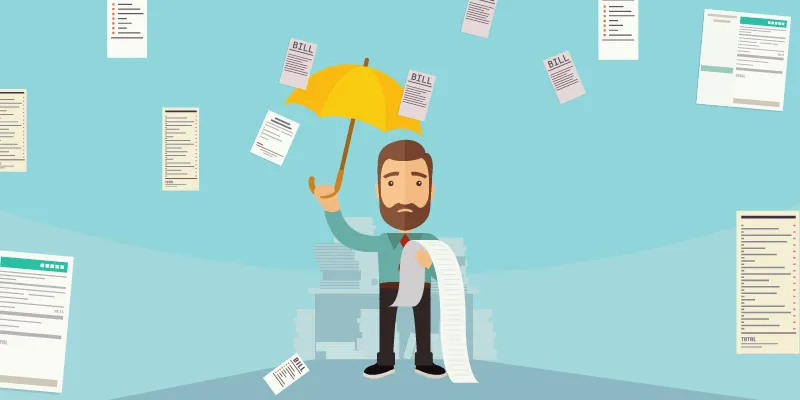A quick guide to T&E management during the most dreaded of seasons
Along with the blissful showers, the monsoon brings a number of woes for business travellers. Roads get water-logged and jammed with unending traffic, there are flight delays and even the IT infrastructure at hotels is rendered non-functional. For employees looking to travel on work, the entire experience of maintaining bills, checking into hotels, or waiting in check-in lines at the airport after a frustrating road journey becomes challenging. Filing expenses post the travel is another source of trouble, as this environment often leads to people losing their bills, having them compromised due to the rains or even completely forgetting to file them on time. All this chaos adds to the challenges of manual expense filing, which is still followed by a majority of companies, and employees end up being disgruntled about delays or even failures in reimbursement. At the other end of the spectrum, there is only partial visibility of expenses for CFOs, and this adversely affects the overall T&E management.

Image : shutterstock
Monsoon or not, T&E management will continue to be a crucial area of spend, considering the evolving and expanding business landscape. According to the Global Business Travel Association (GBTA), India's total travel spend is expected to grow 10.9 percent in 2016. Moreover, T&E management is the second largest controllable expense in an organisation.
Whether it is the business spend or the safety of employees during monsoons, T&E management calls for the intervention of technology to wade through troubled waters.
Automation is key
It has been proven that using an automated travel and expense management solution cuts booking fees by 79 percent and saves as much as 41 percent of the time spent on completing expense reports. Automation is key to controlling and reducing operating expenses and eliminating avoidable paperwork. For many companies, expense tracking is still managed through Excel-based travel expense reports and piles of paper purchase orders, requisitions and invoices. These manual, paper-based processes provide little or no ability for spend policy enforcement. Additionally, these methods, which are slowly turning archaic, add to the mess created by the monsoons.
Ease of anytime-anywhere filing
When empowered with mobility, employees can surpass the bottlenecks in saving paper bills and safeguarding them from the rain. Moreover, by updating expenses then and there, and on-the-go, the chances of missing out on timely reimbursements are reduced. According to IDC, Enterprise mobility in India may touch $1.8 billion by 2017; this stands testament to the fact that firms are turning towards mobility apps for enhancing productivity. Technological advancement has led the way to automated expense management systems that have made this process quicker and error-free. In this context, it is important for CFOs to give employees the tools to submit their expenses using their mobiles to process things faster and increase convenience remarkably.
Visibility over all else
Irrespective of the season, CFOs need to have holistic visibility of all expenses and particularly at the very start of the financial year. This is in order to gain actionable insights that enable companies to drive greater compliance to policies, to stop bad spending decisions before they happen, and to manage, plan and forecast more accurately right at the beginning. Visibility into cost is a crucial element in guiding CFOs as their companies make important decisions around strategy, operations and investment priorities. According to a recent study , visibility is one of the three main challenges for CFOs (after rising travel expenses and compliance).
Safety first
Going past business spends and RoI, in the event of a disaster, it is the responsibility of the organisation to safeguard employees while they are on business travel. The company must be able to find employees, communicate with them and ensure their well-being at all times. This can be guaranteed by integrating a smart feature in the end-to-end automation solution that the company deploys. Situations like these call for preparedness as opposed to reacting to them after they occur.
While monsoons may be seasonal, preparing for smooth T&E management during this period in anticipation is an ongoing process. Just as how we look forward to the rains in times of water crisis in the country, CFOs should look forward to an integrated technology solution to enhance accuracy, visibility and control while managing travel and expense in a company. This solution should be one that provides a customised experience for business travellers, thus ensuring a perfect experience!
(Disclaimer: The views and opinions expressed in this article are those of the author and do not necessarily reflect the views of YourStory.)







